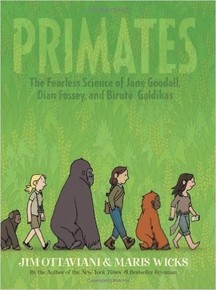 Andrea Tyson Staff Writer The comic books that we have grown up with are getting a makeover. For years, comic books only told stories revolving around science-fiction: traveling to outer space, using supersuits with technologically-advanced weapons to defeat villains, and other stories that occurred on an Earth hundreds of years from now. In recent years, however, comic books have been used to illustrate topics in the realm of science through stories. For most young children, picture books are their introduction to reading. You sit down in bed right before bedtime and beg Mom or Dad to read just one more story until they figure out an hour has passed, and you should already be asleep. Teachers and artists are taking advantage of this and are now using comic books as a tool for education. Briane Greene is a theoretical physicist with a young child. He told the audience of the “When Science gets Graphic” panel at a 2013 Comic Con Festival, hosted by the World Science Festival, that "science is a dramatic story of discovery. It's a story that requires imagination. It requires flights of fancy.” He went on to tell them that when it is time for bedtime stories, he incorporates topics from his own research into the stories he tells his son. “... These flights of fancy — especially when they're filtered through a mind that's still agile and fertile — can take these ideas to an unexpected and unusual place." More scientists are agreeing with this platform to teach our youth these complicated topics. Jim Ottaviani, who is a nuclear engineer and author of his own science-fiction comic Primates, said, "Scientists use pictures to communicate. …This is the way scientists work; this is how they communicate with each other — and comics as a means for communicating science and the joy of discovery is, in fact, quite natural.” He continued saying, "I have yet to meet a scientist who doesn't think that that's true." Comic books give students information and an image to help them understand what they are reading.
What do you think of this approach to learning these complicated topics? This idea is definitely a fresh way of looking at things, but do you think it would work? Comments are closed.
|
Archives
March 2017
Categories
All
|

